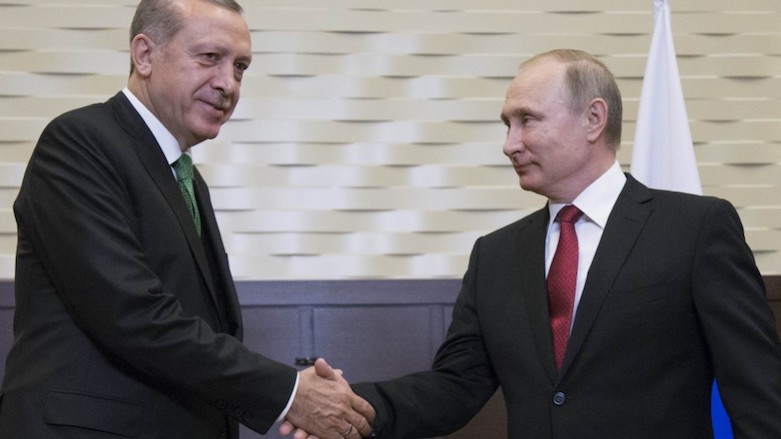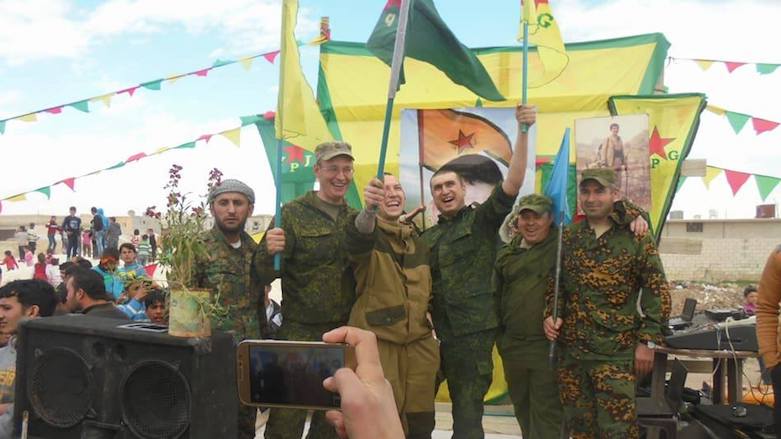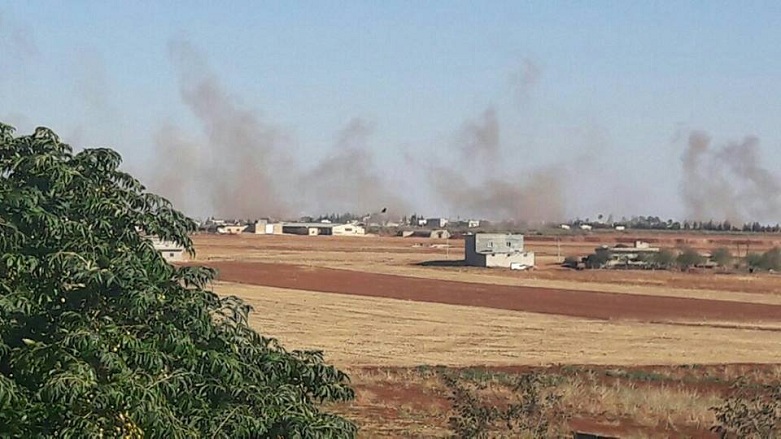Erdogan reports Russian soldiers with ties to YPG to Putin

ERBIL, Kurdistan Region (Kurdistan24) - Turkish President Recep Tayyip Erdogan reported Russian soldiers whose pictures alongside Syrian Kurdish fighters emerged last week to his counterpart Vladimir Putin during their meeting on Wednesday, according to Turkish media.
"We had photographs with dates and location. I presented all of them [to Putin]. He said our troops cannot be involved in such a thing," Erdogan told Turkish news channel NTV on his way back home from the Russian city of Sochi, where the two met.
Russian soldiers and tanks arrived in the Kurdish canton of Afrin in northwestern Syria last week after Turkish shelling in the area resulted in civilian casualties.
"Our weapons cannot be given to PYD and PKK. I will look into the matter," Putin allegedly told Erdogan.
Unlike Turkey's NATO allies, such as major EU countries and the US, Russia does not consider the Kurdistan Workers' Party (PKK) a terrorist group.
The PYD, Democratic Union Party, is the ruling party in Syrian Kurdistan where its armed wing, the People's Protection Units (YPG), is the primary US ally in the fight against the Islamic State (IS) group.

Turkey considers the PYD and YPG as extensions of the PKK, thus "terrorists," a view which, much to the dismay of the Turks, is not expressly shared by the US and Russia.
"I hope Russia takes determined measures and does not allow for such negative developments," Erdogan continued.
In their joint press conference after the Sochi meeting, Erdogan grouped the YPG and PKK along with Al-Qaeda and the IS, but Putin fell short of affirming his Turkish counterpart's opinion.
Alliances YPG has developed both with the US, and Russia have exasperated Turkey, whose Foreign Minister Mevlut Cavusoglu described last month's actions by the two super powers as "incompetent" and "an unacceptable competition to win over a terror group."
Turkey is alarmed by the prospects of a second autonomous Kurdish entity emerging in the Middle East similar to the Kurdistan Region in Iraq, fearing its impact on its own local Kurdish population which has pushed for similar demands.
The Turkish President told press members on his plane that Putin reassured him Russia was not favorable to the establishment of a Kurdish state in northern Syria.
The PYD's official policy in Syrian Kurdistan, which Erdogan has labeled a "terror corridor" along the Turkish border, is not statehood.
As a meeting with the US President Donald Trump on May 16 nears, Erdogan last week claimed he would show the White House pictures of US forces alongside YPG fighters in the hope of dissuading Americans from working with the Kurds.
US Army deployed tanks and special forces along the border in an attempt to prevent additional Turkish attacks similar to the airstrikes carried out in late April which killed at least 25 Kurdish fighters.
As Erdogan was returning from Russia, one of his chief advisors suggested US soldiers could "accidentally" be hit by Turkish rockets.
Since Trump's swearing-in, the Turkish government's rhetoric is to blame former President Barack Obama and Pentagon officials for the American-Kurdish collaboration in Syria.
Editing by G.H. Renaud


